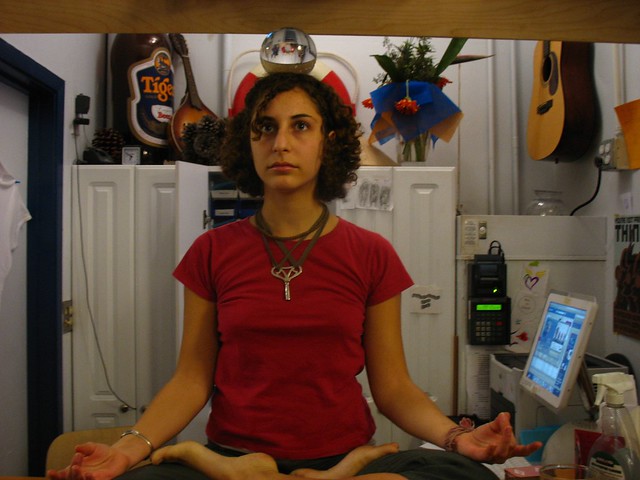
What Makes Contemplation Spiritual?
Many of us have serious questions about contemplation and spiritual life. They vary from person to person, but most of them are really questions about what makes contemplation spiritual.
Some of us are intimidated by all the rules and expectations. We want to make sure we are doing things the right way.
Sometimes we confuse spiritual life with religion. We get lost in the ways people talk to us about spiritual life.
It can feel like people are inviting us to participate in a conversation in a language we do not know. Even when they are gracious to include us we cannot be part of the conversation without an interpreter.
Why, for example, is contemplation spiritual? What makes an idea or an action spiritual instead of analytical or physical or emotional? Is spiritual life distinctly different from other categories of life?
How can we tell when something is more spiritual than psychological?
What about different varieties of spirituality? Does contemplative spirituality share aspects in common with other kinds of spirituality? Are there qualities which hold spiritual life together?
Do we have ways of understanding spiritual life when our senses might not help reveal it to us?
What do we even mean when we say something is spiritual?
The dictionary tells us spirituality is the quality of being focused on the human spirit or soul. It distinguishes spiritual from what is material or physical.
But there are physical or material aspects of spiritual life. Some people believe spiritual life benefits them financially or with physical health. Others believe our actions are evidence of spiritual life within us and in the world. Many people believe in physical manifestations of spiritual truths.
How does spiritual life live in us?
Is Spiritual Life Really So Spiritual?
Our questions and confusion about spiritual life grow from our lack of attention to our souls.
Many of us live in worlds where our physical lives or our emotions absorb our attention. We pay attention to our minds and our hearts but we often are not particularly in touch with our souls.
Physical life and emotional life seem immediate and open to us. Our psychological life makes sense to us. Many of us consult with people trained to help us maintain physical or psychological health.
It is becoming more and more unusual for us to experience spiritual health. We forget our lives are spiritual and lose touch with spiritual health.
Many of us begin to question the significance of spiritual health.
We begin to interpret spiritual life as if it were essentially physical or emotional in nature. Our perspectives reinforce our assumptions our lives are not particularly spiritual.
Many of us begin to assume spiritual life is something which belongs in the past.
Some of us discount or are distracted from paying attention to spiritual aspects of our own lives. Spiritual life becomes something far from our everyday lives, or a sign of imbalance. We suspect people who experience everyday life as spiritual need the psychological support it gives them.
We would like to assume away the parts of our lives which might be spiritual.
How Does Life Become Spiritual For Us?
Some of us believe spiritual life is inextricably interwoven with being religious.
We may be convinced we can only experience spiritual life in a place of worship. We begin to see spiritual life as dependent on where we are, what we do, or who we know. It is as if think spiritual life needs help to reach us and we need to do our part.
My experience of spiritual life is different.
Spiritual life may be inspired and strengthened by spending time in particular places. It resonates in me each time I retreat at the monastery to which I am connected. Visiting places where people have worshiped and practiced contemplation for generations can be helpful.
Developing practices and disciplines can help us remember to make room for spiritual life. Some religious activities might help us learn how to be more open to spiritual life.
What is essential is the spiritual life.
Contemplative practices are not about becoming the best practitioners we can be. Our practices are not competitions with others to determine which of us is more spiritual. We are not in a contest to win more, or deeper, spiritual life.
Our practices help us become more open to the spiritual life all around us and within us. When our actions do not help us resonate with spiritual life we change them.
Some people find religious participation helpful and supportive as they explore spiritual life. Many others experience more openness to spiritual life surrounded by nature than by buildings.
Some people draw on religious experiences to find the steps of their spiritual journeys. Others work to overcome obstacles from their religious experiences.
Our contemplative practices help us recognize how spiritual life is spiritual for us.
Living Lives Which Are Spiritual
For many of us recognizing life is spiritual begins with becoming open to spirituality.
We find ways to intentionally remember to be open each day or each week. Many of us find contemplative practices are significant first steps toward recognizing spiritual life.
We may decide to go to a particular place or incorporate a particular practice into our schedules at a specific time. Some of us find other people with whom we can practice together.
Our practices vary in how we begin to approach spiritual life. Some of us find spiritual life so spiritual we need to incorporate special actions into our practice. Others of us discover ways to let go of actions we have relied on in the past.
The key for many of us is appreciating the spiritual life all around us and within us.
We pause to pay attention and practice being open, and discover our lives are spiritual, in contemplation.
How will we become more open to experiencing lives which are spiritual through contemplation today?
When will we take time to pay attention to aspects of our lives which are spiritual this week?
[Image by Orin Zebest]
Greg Richardson is a spiritual director in Southern California. He is a recovering assistant district attorney and associate university professor and is a lay Oblate with New Camaldoli Hermitage near Big Sur, California. Greg’s website is http://StrategicMonk.com and his email address is [email protected].












